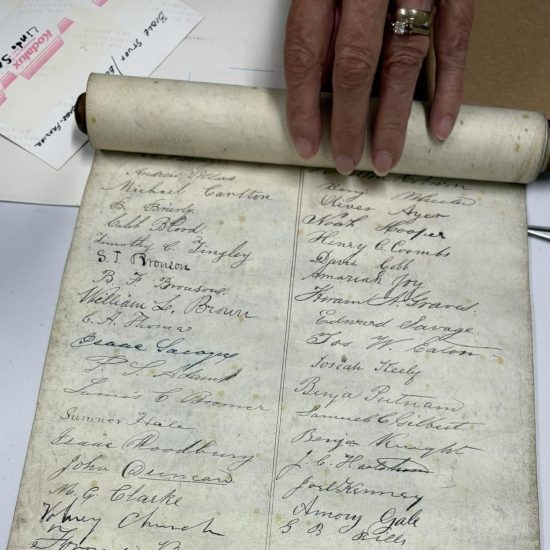
Ahead of the Southern Baptist Convention’s annual meeting this week in New Orleans, Louisiana, bestselling author Rick Warren has been mounting a public campaign as he urges the nation’s largest Protestant denomination to not kick out churches for ordaining female ministers. While his advocacy sparked profiles recently from publications like the Washington Post, Religion News Service, and Associated Press, that coverage leaves out an earlier time when Warren publicly broke with the SBC over its attempt to draw narrower lines for fellowship.
In 2004, the SBC voted to leave the Baptist World Alliance, which brings together Baptists from around the world for missions, relief and justice work, dialogue, worship, and fellowship. Warren, however, criticized the move and served as a keynote speaker for the BWA’s centennial celebration the next year in Birmingham, England.
“God has called us to enjoy and fellowship with each other and work together. We’re all in this together,” Warren said while encouraging Baptists to “celebrate our diversity and celebrate our unity.”
Asked during the BWA gathering about the SBC’s withdrawal, Warren told reporters it was a “silly” mistake.
“When the Southern Baptists pulled out funding, my wife and I wrote a check for $25,000 to the BWA,” he said. “Why would we separate ourselves from brothers and sisters in the world?’”
Warren also said he wasn’t worried about criticism from SBC leaders — which did come — for continuing to support the BWA.
“I just do what I think Jesus would do,” he explained. “My conviction is that if you love Jesus, we’re on the same team, whether or not we agree on everything else.”

Rick Warren, pastor of Saddleback Church, addresses the Southern Baptist Convention annual meeting on June 14, 2022, in Anaheim, California. (Justin L. Stewart/Religion News Service)
The SBC-BWA conflict two decades ago emerged after the BWA accept the Cooperative Baptist Fellowship as a member body. CBF was formed by former Southern Baptists who felt pushed out by the rightward shift of the SBC. After some SBC leaders unsuccessfully tried to prevent CBF’s acceptance, SBC leaders created a litany of attacks against the BWA to justify leaving, including claiming the BWA was “liberal” and “anti-American.”
Denton Lotz, who led the BWA at the time, disputed the allegations by Paige Patterson and other SBC leaders as “slander.” He added that because of the SBC’s claims, “the gospel of our Lord Jesus Christ has been tarnished and the body of Christ brought into schism.”
Even as Lotz noted the diversity among global Baptists, he firmly disputed the charge of “liberalism.” He pointed to the BWA’s adherence to historic doctrines. Others also pointed out that some Baptists in the BWA considered the SBC to be liberal on various issues.
The charge of an “anti-American” bias within the BWA came as some SBC leaders criticized the BWA for inviting South African Archbishop Desmond Tutu to speak at a gathering in his nation. Lotz, an American Baptist, called it “absurd” to label that anti-American. He added, “As Baptists who believe in the authority of the word of God, we believe that all of us must be open to the prophetic voice from God as it applies to our nations and to the world.”
Patterson, who served on the committee that recommended the SBC’s withdrawal from the BWA and publicly criticized the BWA, was fired in 2018 by trustees at Southwestern Baptist Theological Seminary in Texas for mishandling reports of student sexual assaults. Another member of the committee, Paul Pressler, has been accused in court filings by multiple men of unwanted sexual advances.
Although Warren was the most prominent Southern Baptist individual to buck the will of the Patterson-Pressler movement and stay engaged with the BWA, he was hardly alone. Wanda Lee, head of the Women’s Missionary Union, continued her involvement, as did numerous other Southern Baptist pastors, professors, and institution heads. And two state conventions affiliated with the SBC officially joined the BWA. The SBC tried to start an alternative global initiative, but it fizzled out after Baptists in other nations stayed with the BWA.
Warren’s latest public split with the SBC started in 2021 when he led Saddleback Church in Orange County, California, to ordain three women in ministry roles. That sparked an effort to kick the church out of the SBC, but it didn’t go to a vote last year after Warren personally appealed to messengers at the SBC annual meeting in Anaheim, California. At the time, Warren had just retired from the church he founded in 1980. Controversy grew as Andy Wood took the helm with his wife Stacie joining the staff as a teaching pastor.
In February, the SBC’s Executive Committee voted to declare Saddleback “not in friendly cooperation” with the SBC because of the issue of female ministers. The church is appealing that ruling to messengers this week, as is another church in Louisville, Kentucky, that has had a female lead pastor since 1993. Although no longer leading Saddleback, Warren has mounted a spirited public advocacy campaign ahead of the convention.
While Warren’s position on women in ministry comes from a newer understanding of scripture and God, his rhetoric during the spat with the BWA two decades ago offers a clear precursor to what he’s been saying in recent weeks. Like today, he emphasized back then the need for Baptists to work together even amid differences.
Additionally, by refusing to cut himself off from the broader fellowship of Baptists, Warren went to the BWA meeting with female pastors and conventions that affirmed women in ministry. The fact that some Baptist bodies had female ministers was one of Patterson’s complaints about the BWA. While not all who are part of the BWA today affirm women in ministry, they remain in fellowship with those who do — modeling what Warren is asking Southern Baptists to try. The question is whether his appeal will fall on deaf ears among a group that already cut itself off from the diversity of the Baptist tradition.






